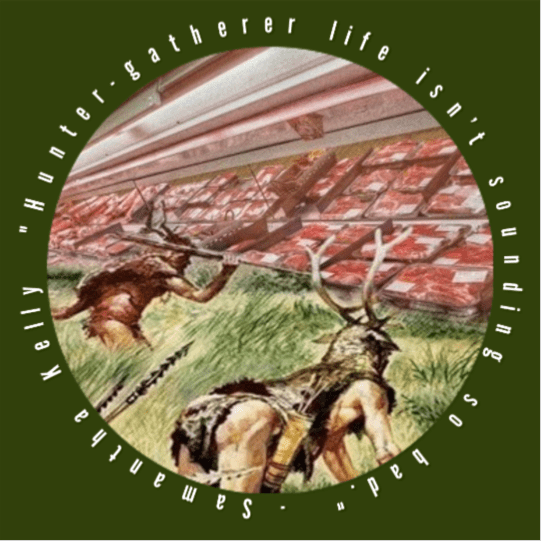Full tummies allow for foolish ideas
The agriculture industry has the incredible ability to continually improve the production of crops while making it appear effortless, which has allowed people to hold romantic notions about food. Our grocery store shelves are continually over-flowing and with tons of variation for our own convenience. Full grocery shelves mean shoppers never have to worry about producing their own food. So why would a consumer need to worry about where the actual products on the shelves originate? The simple answer is that in far too many instances, they don’t. Many consumers’ ideas of food, start and stop with their local grocery store.
This romantic notion was highlighted to me in a recent article in The Atlantic, which asked readers to name one thing that in hindsight, would have been good to change. An interesting question to pose, but the absurdity of one response caught my attention and inspired this blog.
“Hunter-gatherer life isn’t sounding so bad.” Say what?

The utter naivety of this response is staggering. The fact that the response comes from someone who is well educated, and is an educator herself, raises all kinds of questions. How any individual could romanticize a hunter-gatherer lifestyle exceeds the realm of sane comprehension.
Here’s what’s wrong with this simplistic notion of a hunter-gatherers lifestyle.
- Let’s start with life expectancy. Over 40% of hunter-gatherers didn’t reach the age of 15. Of those that did, three-quarters lived to be 45 or older, middle-aged today (in other words one-third of all births lived to 45). The average life expectancy was between 21 and 37.
- How about environmental degradation? The reason hunter-gatherers were nomadic was that they had to move to find new sources of meat. A lack of local food sources certainly doesn’t correlate to environmental sustainability.
- Workdays for hunter-gatherers lasted as long as it took to kill an animal or gather enough plant material for food. If one was fortunate, a sufficient kill was made early in the day. Those less fortunate didn’t eat that day.
- Those not hunting to kill food spent their days scavenging for grasses, roots, fruits, seeds and nuts. Not easy or enjoyable in the Northern Hemisphere during the winter months.
- Better health outcomes were also brutally efficient, the healthy survived, the rest died.
If those that romanticize food production think the above realities of hunter-gatherer lifestyles are preferable, then I wish them well. I’ll gladly choose to have agriculture’s ability to provide diverse, healthy and nutritious foods. Agriculture has been so successful at providing food security that people now have the luxury to recline with full stomachs and ponder ridiculous ideas.



